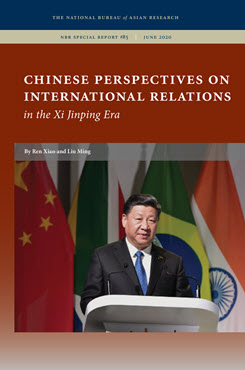Xi Jinping’s Vision of a Community with a Shared Future for Humankind
A Revised International Order?
This essay examines the political and theoretical dynamic, content, and implications of Xi Jinping’s vision of a community with a shared future for humankind, considers how the international community and academia should objectively and rationally interpret this idea, and assesses the difficulty in implementing it.
MAIN ARGUMENT
Building a community with a shared future for humankind will bring five major changes to international relations: developing a new model for major-power competition, shifting security concerns to nontraditional threats, promoting win-win economic cooperation instead of zero-sum trade and technological competition, integrating non-Western practices and governance with the Western system of universal values, and managing economic development in a way that ensures ecological balance. As disorder, conflict, and strategic competition spread throughout the world, this vision for a better world reflects Chinese philosophical underpinnings of justice, fairness, tolerance, mutual respect, equality, and dialectical balance. Beijing understands that the United States and other major powers will not abandon their vested interests in maintaining this established political and economic architecture and alliance network in order to accommodate a rising power. Thus, Xi stresses the common ground between China and the West, including widely shared norms and international institutions. Many developments have changed the political and economic architecture since the end of the Cold War, rendering many existing structures, institutions, and principles too obsolete or dysfunctional to address new trends and challenges. This offers a compelling rationale for improving and revising the world order to keep up with the times.
POLICY IMPLICATIONS
- The idea of a community with a shared future for humankind needs to be turned into an understandable and operational policy with discourse that reflects common practice, willingness to change by most countries, and progress of global governance.
- China’s main efforts to implement this vision should place more emphasis on win-win and reciprocal cooperation with developed and developing countries.
- The U.S. and other Western countries would do better to read and judge China’s proposals, diplomacy, and actions from a more objective and rational perspective, avoiding a monistic or binary interpretation and conspiracy theories.
Liu Ming is a Professor in the Institute of International Relations at the Shanghai Academy of Social Sciences.



